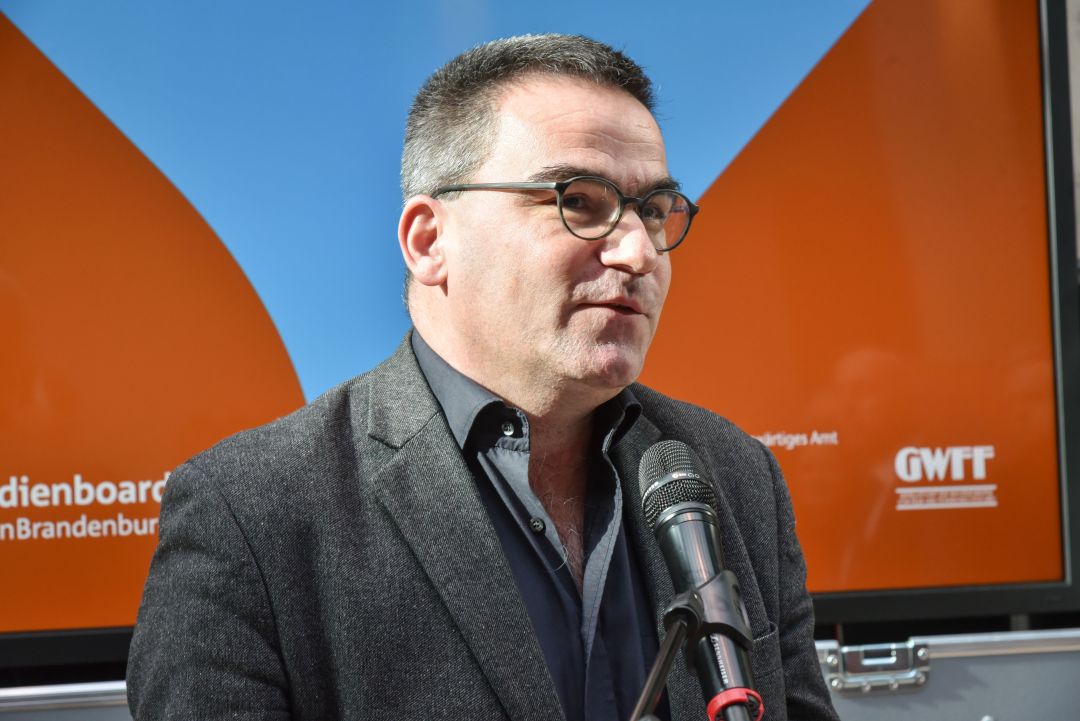Three questions to... Bernd Buder, Programme Director of FilmFestival Cottbus
There are about 100 days left until the 28th FilmFestival Cottbus (6. to 11.11.2018). Programme director Bernd Buder already gives a little insight into the current preparations, explains why good films are never boring and gives some valuable advice to the impatient festival fans.
The 28th edition of the FilmFestival Cottbus is still about 100 days away. What do you think, when you look back at the past months of preparations and what do 100 days left till the opening mean to you?
It's about the same rhythm every year. The Karlovy Vary Film Festival is the break-even point: when it's over, you know it's time to bag the programmes. A lot of work behind the scenes has already been done by then: Funding applications, concepts for the various film series, research for the secondary series, our numerous presentations accompanied by film screenings, jury participation and receptions at partner festivals. In addition to big industry events such as Cannes, particularly exciting are the visits to small festivals, because there you can really get a feel of what a country, a region is like. At the Kozzi Festival in Zielona Góra for example, you come very quickly into contact with regular cinema-goers, who don't keep their honest opinions on the film 'behind the scenes', whether they're positive or negative. This experience is then incorporated into the programme, which lies now in front of us in detail: How do we strike a balance between art house and genre? Between Central Asia and the Baltic states? Between political film and pure entertainment? There are so many different stories and so many ways to tell them. Many of them are now ending, as the example of the war in Donbass shows, tragically. Not just in the movies. It really affects one emotionally.
If you travel so much, attend numerous festivals and watch countless films, you are probably confronted with a special abundance of content. How do you keep the open-mindedness to get involed in every film again?
With good movies you don't get tired so quickly, they also keep you captivated when you've already seen five movies that day. In addition, every movie is different. At festivals you can always talk to your colleagues immediately about the films, also about the background: Why is this film now particularly important for the country where it was made? What is the meaning of the places in which it was shot, and of the names that are used in it? Often a film extends when you know this background, and you are happy when you're able to read these cultural codes. That's what makes this job particularly exciting: you learn to put yourself in the position of other cultures. It constantly stimulates your curiosity, and when you recognize some location after the eighth Serbian film, for example, you already understand the symbolic character of this place. Nevertheless, a film must have some inner tension, its picture dramaturgy must be right, the acting as well - unfortunately, sometimes one's patience is put to the test more often than one had imagined. It is even more uplifting when you then watch a film that grips you from the very first second. After a long day of work you feel suddenly awake again.
What would you like to say to the already impatient FFC fans today?
In any case, we can promise another exciting, extensive programme. If you have the time, you can make your way to Wroclaw at the end of July/beginning of August, where the great New Horizons Film Festival takes place. Starting in August, residents of the city of Potsdam will have the opportunity to see prizewinners from recent years at the Filmmuseum Potsdam. In cooperation with the VoD provider, we are also working on offering Eastern European cinema for streaming fans by the end of summer. In the near future, we will also present a few films together with the Cottbuser Obenkino. Some - as always too few - Eastern European films will be shown soon in German cinemas - as Sergej Loznitsa's DONBASS. A reflection on the drama that takes place in Eastern Ukraine, which calls on each of us to reconsider our responsibility for peaceful and tolerant coexistence. It may sound pompous, but it is precisely the example of the Ukraine-Russia conflict that shows us what happens when politics deals with people, and not the other way round. In this way, Eastern European films continually encourage us to question clichés and preconceived opinions before they escalate into conflict, first and foremost our own. This can be done all year round. Cinema helps in it and entertains at the same time.
